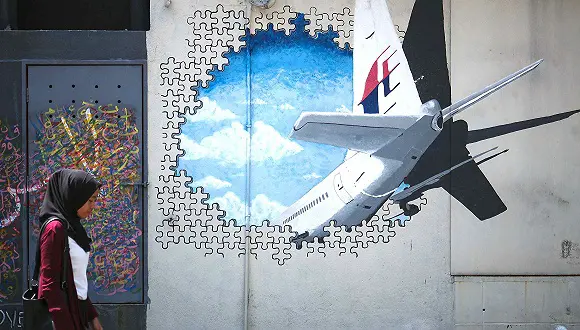Ailing relations between Turkey and Germany have taken a new blow when German lawmakers cancelled on Wednesday a much expected trip to Ankara to conduct political talks amid bitter differences between the two key NATO allies.
Green party deputy parliamentary speaker Claudia Roth was supposed to lead a small delegation of German MPs to the Turkish capital for a three-day visit scheduled to begin on Thursday.
Roth said to the press in Berlin that the Turkish side clearly issued at the last minute the information that they are not welcome.
"Yesterday we received the information that is currently not considered opportune at the very highest level to conduct political talks with the German parliamentary side in Turkey," said Roth. She described the incident as a "political provocation."
The German lawmakers also were told that they couldn't visit the Turkish parliament building. The group included the head of the German parliament's human rights committee that had scheduled meetings with NGOs.
During an official visit to China, German Foreign Minister Sigmar Gabriel called Turkey's actions a "serious event" that did not help make dialogue any easier.
"On a diplomatic level the message has been conveyed to the German side that this visit would not, at present moment, bare concrete results on improving bilateral ties," said to Xinhua a Turkish diplomatic source, preferring to remain anonymous.
"We will wait and see the position and steps of the German side in the future and eventually take a new decision concerning a possible visit," he added.
German Chancellor Angela Merkel and Turkish President attended NATO summit on Thursday in Brussels.
The two leaders held discussions on the sidelines of the summit, but with no apparent agreement on contentious issues, according to local Anadolu Agency.
Relations between the two countries have been particularly strained since the coup attempt in July 2016. Germany severely criticized the vast purges against the opposition and the Gulen network, accused of plotting the coup and granted asylum to military officers and diplomats who Ankara accuses of being involved in the botched coup.
Towards and in the wake of April's constitutional referendum which gave new sweeping powers to President Erdogan, relations have been dealt a big blow when the Turkish President accused Germany and some other EU countries of "Nazi" practices for blocking Turkish ministers from campaigning.
Tensions have also heightened over the arrest of a German-Turkish journalist, Deniz Yucel, on charges of terrorism, namely on suspected links with the Kurdish rebels.
And, Ankara is blocking German lawmakers to visit the German military contingent deployed on Incirlik airbase used for raids against the Islamic State (IS) in Syria and Iraq, which have infuriated Chancellor Merkel who is likely considering transferring her 270 strong troops to Jordan.
Six German Tornado reconnaissance planes and a refuelling aircraft are engaged in coalition efforts against IS.
German military missions abroad need parliamentary approval, and German authorities argue that it's essential for lawmakers to be granted access to troops serving on foreign ground.
"If this is their decision, we will say goodbye to them. It is their decision. It isn't really an important problem for us," an uncompromising Erdogan told reporters in Ankara before leaving for Brussels.
His remarks echoed the words of his Foreign Minister, Mevlut Cavusoglu, who had previously told a TV channel, "We are not going to beg the Germans to stay."
But as problematic as they seem, there is always a light at the end of the tunnel for both sides since their relations are intertwined, according to experts.
"Turkey and Germany have the most complex but interconnected ties that can ever be since the big wave of Turkish workers migration of the 1960's," explained to Xinhua professor Birgul Demirtas from Ankara's TOBB University political sciences and foreign relations department.
"The two countries need each other on political, economical and cultural fields," said this expert on German studies, pointing especially on the fact that the electoral process both in Turkey (April 16 referendum) and Germany (federal parliamentary elections scheduled for September 24) have had adverse effects on bilateral ties.
"Ankara and Berlin have in the past survived crisis from time to time but those have been largely overcomed by the prevalence on the grounds of common interests," added Demirtas, who feels confident that the current situation will eventually be solved after the German elections.
(ASIA PACIFIC DAILY)
 简体中文
简体中文

